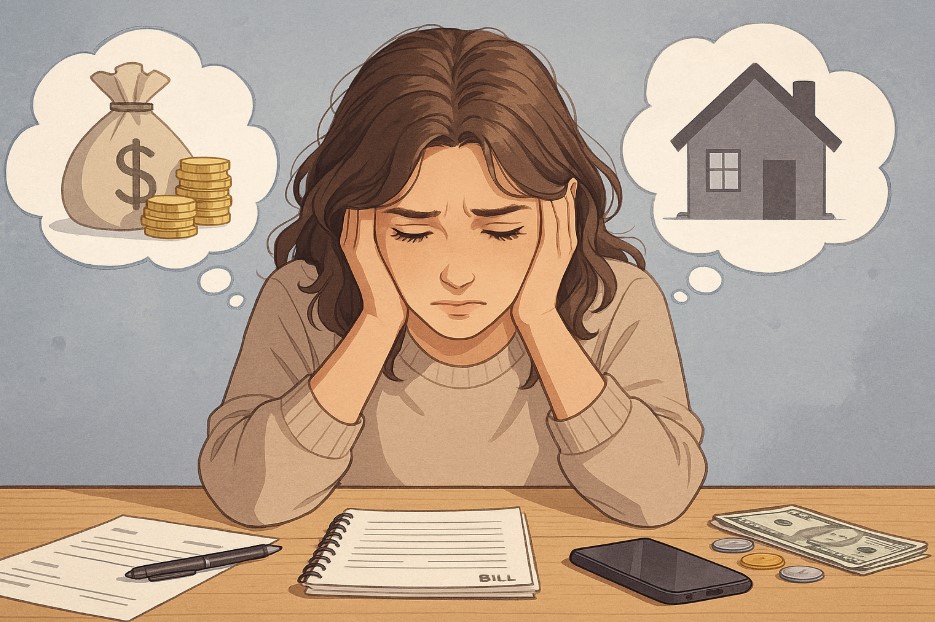Finance
How Your Money Story Shapes Guilt

The Silent Narratives We Carry
Every one of us has a money story. It’s not something we write down or even consciously think about most days, but it shapes the way we feel and act with money. From the way our parents talked about bills, to how we handled our first paycheck, to how we managed a surprise financial setback—these experiences built a storyline that lingers. For some people, this story can be empowering, while for others it can trigger guilt or shame around spending and saving. Even practical tools like debt consolidation can stir up emotions because they intersect with these deeply rooted narratives.
Childhood Lessons That Linger
The earliest chapters of your money story usually start at home. Maybe you grew up in a household where money was tight and every purchase had to be justified. Or maybe you were in a family that never seemed to worry about spending, but you noticed stress creeping in later when bills piled up. Those early lessons stick with us in ways we don’t always recognize. If you learned that money was scarce, you might feel guilty every time you buy something “extra.” If you grew up seeing money as a symbol of status, you might feel guilt when you can’t live up to that standard. These old patterns can influence choices long into adulthood.
The Guilt Behind Everyday Decisions
Guilt around money doesn’t always come from big life events—it often shows up in the small, everyday decisions. That fancy coffee, the new pair of shoes, or even deciding to treat yourself to dinner can carry an emotional weight. The voice in your head might say, “I should have saved that,” or “I don’t deserve this until I pay off debt.” The irony is that guilt rarely helps us make better financial decisions. Instead, it can create a cycle where you avoid looking at your finances altogether, which makes it harder to break free from stress.
When Debt Feels Like a Personal Failing
Debt often carries some of the heaviest guilt. People tend to see it not just as a financial problem but as a reflection of their character. The reality, though, is that debt happens for all sorts of reasons—unexpected medical expenses, job loss, or simply not having access to financial education early on. Guilt makes it harder to separate the numbers from your sense of self-worth. Understanding your money story can help you untangle those feelings and remind you that carrying debt does not define your value as a person.
The Power of Naming Your Story
One of the most powerful steps you can take is simply identifying your money story. Ask yourself: what messages did I absorb about money growing up? What emotions do I feel when I spend or save? What situations trigger guilt for me? By naming these patterns, you gain perspective. It’s like finally seeing the script you’ve been acting from. And once you see it, you have the option to rewrite it. Recognizing your money story doesn’t erase guilt overnight, but it creates space for self-compassion and new choices.
Breaking the Cycle of Guilt
Once you know your patterns, you can start making intentional changes. For some people, that means reframing how they see spending. Instead of thinking, “I wasted money on this dinner,” you might shift the story to, “I invested in connection with a friend.” For others, it may mean creating practical systems—like budgeting or planning payments—that ease the emotional weight. Small changes build confidence, and confidence makes guilt lose its grip. The key is not to silence guilt completely but to stop letting it control every financial decision.
Money, Relationships, and Shared Stories
Our money stories don’t exist in a vacuum. They show up in our relationships too. Couples often discover that their money stories clash—one partner feels guilty spending while the other feels guilty saying no. These differences can create tension if they’re never acknowledged. By talking openly about where those feelings come from, couples can find common ground and build healthier financial habits together. Sometimes, just realizing that guilt comes from the past and not the present can shift the entire dynamic.
Shaping a New Chapter
Your money story will always be part of you, but it doesn’t have to trap you in guilt. With awareness, you can create new chapters that emphasize growth, balance, and healthier choices. That could mean seeking financial advice, setting realistic goals, or even forgiving yourself for past mistakes. Money will always carry emotion, but by understanding the roots of your story, you can decide which feelings to nurture and which to let go. Guilt might still pop up, but it doesn’t have to write the ending of your financial journey.
-

 Entertainment1 month ago
Entertainment1 month ago123Movies Alternatives: 13 Best Streaming Sites in 2026
-

 Entertainment2 months ago
Entertainment2 months ago13 Free FMovies Alternatives to Watch Movies Online in 2026
-

 Entertainment1 month ago
Entertainment1 month ago13 Flixtor Alternatives to Stream Free Movies [2026]
-

 Entertainment1 month ago
Entertainment1 month agoGoMovies is Down? Here are the 11 Best Alternatives






